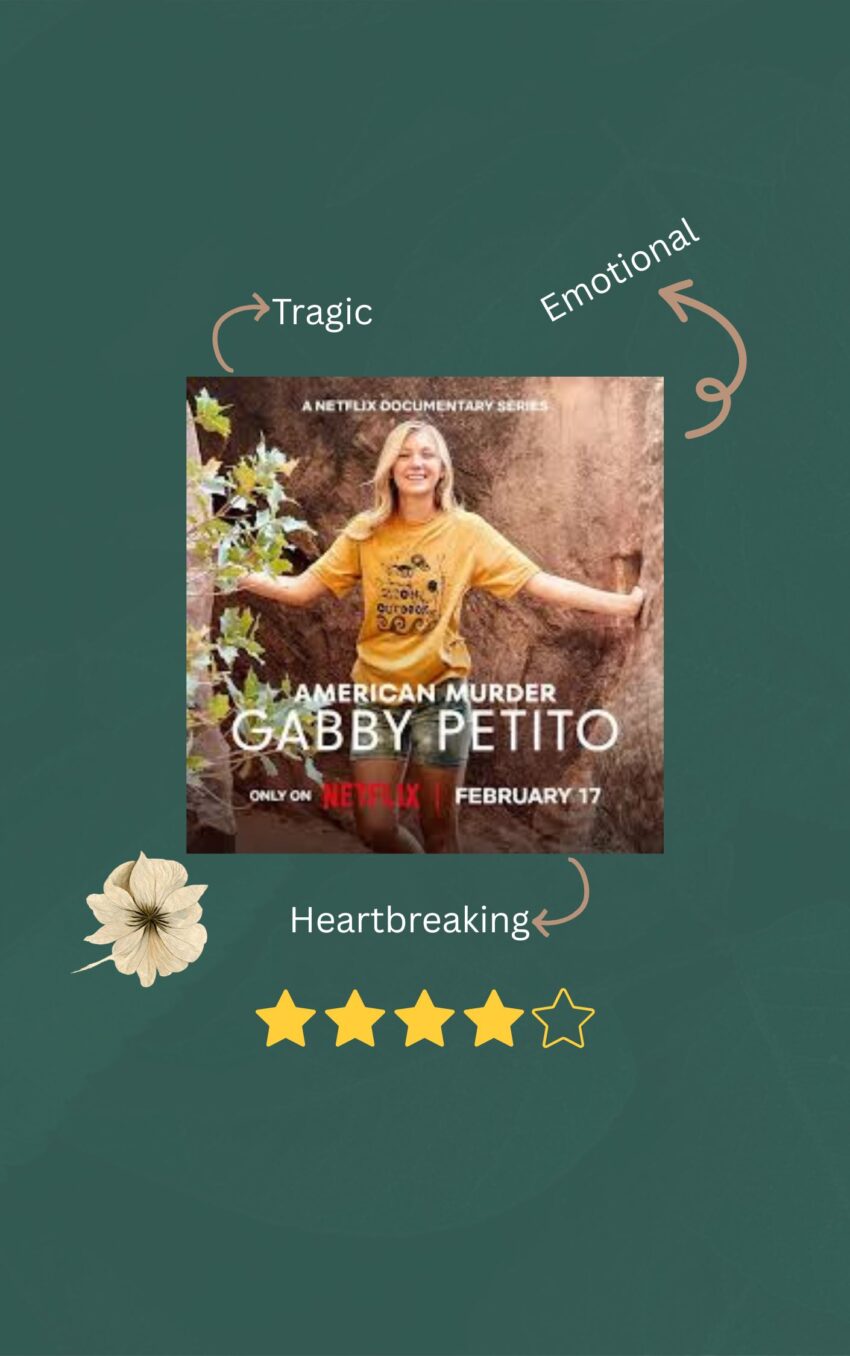Watching The Gabby Petito Story documentary on Netflix was an emotional experience for me. I remember the widespread media coverage when Gabby went missing, but I hadn’t paid as much attention to the details of her relationship with Brian Laundrie until I saw this documentary. Seeing the whole timeline and the subtle signs of abuse in theirrelationship really hit home in a way I wasn’t expecting. It wasn’t just a tragic story about a young woman who lost her life—it was a wake-up call about the devastating reality of domestic violence and how it can manifest in ways that are easy to overlook.
One of the most striking parts for me was the body cam footage from the police stop in Moab, Utah. In the video, Gabby is visibly upset, trying to explain the situation, while Brian remains calm and composed. It’s so clear that Gabby was struggling emotionally, yet the officers didn’t seem to fully recognize the signs of distress or domestic violence. They even told her it was a “dispute” rather than acknowledging the emotional abuse that was likely happening behind the scenes. Watching that, I couldn’t help but feel frustrated. It made me realize how often victims are not taken seriously or how domestic violence can be dismissed as something less severe than it really is.
[ https://claravitadolce.com/shop/ ]
The documentary also highlighted something I hadn’t really thought about before: how emotional and psychological abuse can sometimes be harder to spot than physical violence. Gabby’s relationship with Brian seemed to have all the subtle markers of control—isolating her from others, manipulating situations, and making her question herself. It made me think about how easy it is to miss those signs in everyday life, especially when everything appears normal from the outside. Seeing Gabby’s story unfold through this lens was eye-opening and made me more aware of how important it is to be alert to these types of dynamics in relationships.
This documentary isn’t just about Gabby’s tragic end—it’s about the larger issue of domestic violence and how it can often go unnoticed or unaddressed until it’s too late. It was a powerful reminder of how essential it is to listen to and believe those who are in toxic or abusive relationships, even when the signs are subtle. Gabby’s case is unfortunately not unique, and the film made me reflect on the countless other individuals who may be going through something similar, without anyone noticing or intervening in time.
In the end, The Gabby Petito Story left me feeling heartbroken, but also more committed to understanding and recognizing the red flags of domestic violence. It was a reminder that, sometimes, we need to look beyond the surface and truly listen to those around us. Gabby’s story is a tragic one, but if it opens up more conversations about the realities of abuse and helps others recognize the signs before it’s too late, then it serves an important purpose.
